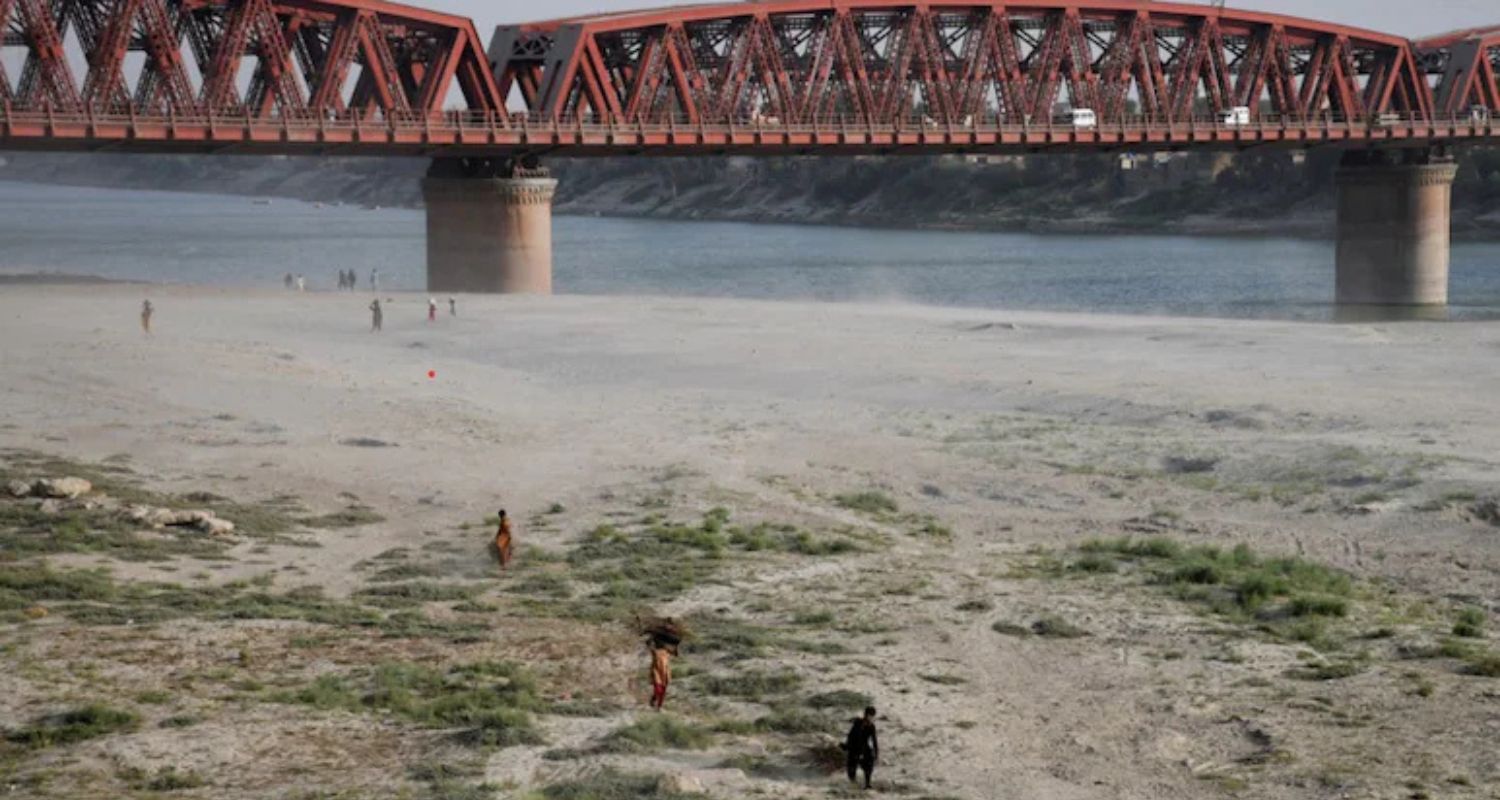Amid a growing water crisis, Pakistan has sent four successive letters to India, urging New Delhi to reconsider its decision to suspend the Indus Waters Treaty (IWT) following the deadly terror attack in Jammu and Kashmir’s Pahalgam that claimed the lives of 26 tourists, sources familiar with the matter said.
The letters, sent by Pakistan’s Water Resources Secretary Syed Ali Murtaza, were addressed to India’s Ministry of Jal Shakti and subsequently forwarded to the Ministry of External Affairs (MEA), sources confirmed. The repeated appeals reflect a sense of desperation in Islamabad, as the country faces mounting water stress.
Despite India’s recent launch of Operation Sindoor targeting terror infrastructure in Pakistan and Pakistan-Occupied Kashmir (PoK), Pakistan continued to raise the issue of the IWT through diplomatic channels, sources added. India has made it clear that its stance remains firm: terror and trade cannot go together, and neither can blood and water. Although the treaty was originally signed in the spirit of friendship and good faith, India believes Pakistan has undermined that spirit by supporting cross-border terrorism, sources said.

Following the Pahalgam attack on April 22, the Cabinet Committee on Security (CCS) — India’s highest decision-making body on strategic matters — approved the move to place the World Bank-brokered Indus Waters Treaty in abeyance. The government invoked its national security prerogative and stated that the treaty will remain suspended until Pakistan takes “credible and irreversible” steps to end its support for terrorism across the border.
In response, Pakistan's Prime Minister Shehbaz Sharif has shown willingness to resume dialogue with India in order to resolve ongoing bilateral disputes. His outreach followed domestic political pressure, with several Pakistani leaders warning of catastrophic consequences if the IWT remained suspended.
"This is like a water bomb hanging over us and we must defuse it," Pakistani Senator Syed Ali Zafar said in May. “We would die of hunger if we don't resolve the water crisis now. The Indus Basin is our lifeline — three-fourths of our water comes from outside the country, nine out of 10 people depend on the Indus water basin for their livelihood, 90 per cent of our crops rely on this water, and all our power projects and dams are built on it.”
Also Read: Pakistan walks back Defence Minister’s claim on Simla agreement
Signed in 1960, the Indus Waters Treaty governs the distribution of water from six rivers — Indus, Jhelum, Chenab, Ravi, Beas, and Sutlej — between India and Pakistan. The agreement is widely regarded as one of the most successful water-sharing treaties in the world.
However, India maintains that Pakistan has consistently violated the treaty’s spirit of cooperation by encouraging terrorism and obstructing necessary infrastructure upgrades. Despite repeated provocations, India has continued to uphold the treaty for decades, showing what officials describe as “extraordinary patience and magnanimity.”
Speaking at an informal session of the UN Security Council in New York on May 24, India’s Permanent Representative P. Harish strongly criticized Pakistan’s disinformation campaign. He highlighted how the ground realities have changed significantly since 1960. “Far-reaching fundamental changes have taken place — escalating security concerns due to cross-border terror attacks, the need for clean energy, the impact of climate change, and demographic shifts,” Harish stated.
He further revealed that India had formally requested treaty modifications on multiple occasions over the past two years, but Pakistan persistently blocked such efforts, despite the treaty allowing for such revisions. "Pakistan has continued to consistently block any changes to this infrastructure and any modifications of the provisions, which are permissible under the treaty," Harish noted. He emphasised that while the treaty’s foundation lies in goodwill and friendship, Pakistan has inflicted three wars and thousands of terror attacks upon India.
Also Read: Pak faces major water crisis as heatwave, Indus water shortage


